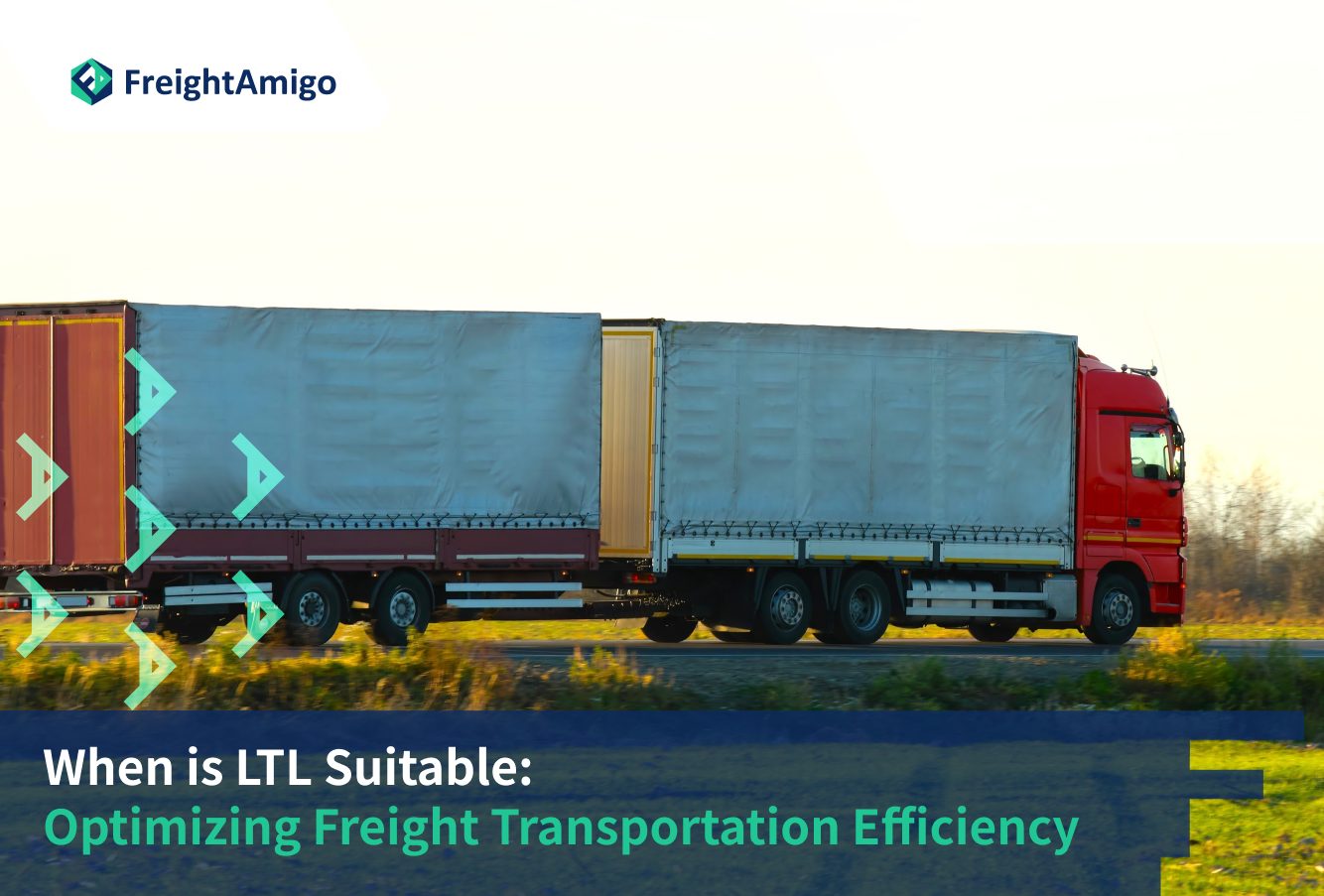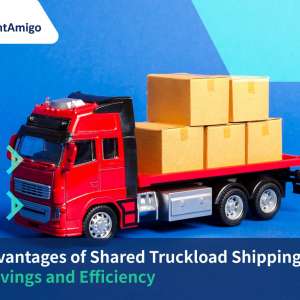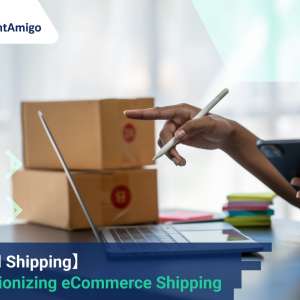In the constantly evolving logistics and transportation industry, efficiency, cost-effectiveness, and flexibility are paramount. Businesses of all sizes are continuously seeking ways to streamline their shipping processes and optimize their transportation strategies. One such strategy that has gained significant traction in recent years is Less-than-Truckload (LTL) shipping.
LTL shipping, also known as less-than-load shipping, is a form of freight transportation primarily for small loads where multiple shipments from different companies are consolidated onto a single truck. LTL carriers specialize in handling smaller shipments between 150 and 15,000 pounds that don’t require an entire truck. This method offers many advantages, making it a preferred form of transportation for many shippers.
In this article, we will explore the factors that make LTL shipping suitable for optimizing freight transportation efficiency. We will delve into the key considerations, benefits, and best practices associated with LTL shipping, providing valuable insights for supply chain and logistics managers looking to maximize efficiency in their operations.
Latest update on 26 January, 2024 by Aurora Park– Marketing Analyst at FreightAmigo
Want to compare the best Express, Air Freight, Sea Freight, Rail Freight & Trucking rates so as to have better control on cost?
Understanding LTL Shipping
LTL shipping is a cost-efficient alternative to full truckload (FTL) shipping. Unlike FTL shipping, where a company needs to wait until an entire truckload of their products is ready to go, LTL allows for the transportation of smaller amounts of goods as soon as they are produced or sold. This flexibility is particularly beneficial for small businesses that primarily operate online and frequently ship relatively small quantities of products to customers.
Cost Efficiency
One of the major advantages of LTL shipping is its cost efficiency. Instead of covering the expense of an entire truck’s capacity, shippers only pay for the space their shipment utilizes. This cost-efficient approach can result in substantial savings for businesses, especially those dealing with smaller or sporadic shipment volumes. Small businesses, in particular, benefit from LTL shipping, as they can avoid paying high costs for unused space. Additionally, the National Motor Freight Classification (NMFC) sets standardized pricing for LTL shipments, ensuring consistent and fair pricing across carriers.
Eco-Friendliness
Sustainability is a growing concern for many businesses and consumers. LTL shipping contributes to a more environmentally friendly supply chain by consolidating shipments onto a single truck, reducing the overall carbon footprint associated with transportation. This consolidation aligns with green initiatives and helps reduce a company’s environmental impact.
Safety and Security
LTL shipping offers enhanced safety and security compared to other shipping methods. Most LTL shipments are packaged onto pallets before being loaded into trucks, making handling safer and more efficient. Carriers often provide insurance coverage for the cargo, offering an added layer of protection in case of damage or loss during transit. Modern LTL carriers also provide advanced tracking and visibility tools, allowing shippers to monitor their shipments in real-time and minimize the risk of damage or loss.
The Advantages of LTL Shipping
LTL shipping offers several advantages that contribute to optimizing freight transportation efficiency. These advantages include:
1. Optimize Packaging
LTL shipping incentivizes shippers to optimize the packaging of their goods. Carriers consider size and density when determining the cost of an LTL shipment. By packing goods tightly and densely, shippers can maximize the value of their shipments and reduce costs. This push towards packaging efficiency also benefits the environment by minimizing wasted space and promoting sustainable transportation practices.
2. Efficient Use of Truck Capacity and Fuel
LTL carriers have a financial interest in maximizing the use of every inch of space in their trailers. They sell capacity, so making full use of that capacity is crucial for their profitability. By efficiently utilizing truck capacity, carriers can reduce costs and improve fuel efficiency. The focus on density and load optimization also contributes to a more sustainable approach to transportation by minimizing carbon emissions associated with underutilized truck space.
3. Route Optimization
LTL shipping requires careful route planning to ensure the efficient movement of various shipments in the same general direction. Unlike FTL shipping, where trucks move a single load from origin to destination, LTL carriers must consider multiple shipments and plan the best way to get them all to their respective destinations. This focus on route optimization not only improves fuel efficiency but also reduces transit times and enhances overall delivery performance.
4. Flexibility
LTL shipping offers flexibility and customization options, making it easier for companies with unique shipping requirements. LTL carriers provide various services such as pickup and delivery choices, liftgate assistance, and inside delivery. This flexibility enables shippers to tailor their shipping needs to align perfectly with their businesses and customers’ demands.
5. Network Access
LTL carriers have expansive networks that cover a wide geographic area. This extensive reach allows shippers to reach customers or suppliers in remote or hard-to-reach locations without needing a full truckload shipment. Access to a broad network of LTL carriers opens up new market opportunities and simplifies the logistics of reaching diverse destinations.
Best Practices for LTL Shipping Efficiency
To optimize freight transportation efficiency through LTL shipping, it is essential to adopt best practices that enhance operational effectiveness. These best practices include:
1. Collaborative Network Planning
Building strategic partnerships with other carriers can lead to a more efficient and cost-effective LTL shipping process. By sharing resources and capacity, carriers can take advantage of economies of scale and achieve better results. Collaborative network planning can also result in improved delivery performance and increased customer satisfaction.
2. Regular Performance Analysis
Monitoring key performance indicators (KPIs) related to LTL shipping can help identify areas for improvement and implement necessary changes. Essential KPIs to track include delivery performance, transportation costs, and vehicle utilization. Collecting and analyzing data is crucial for understanding the impact of LTL shipping efforts and making informed decisions.
3. Continuous Education and Training
Staying up-to-date with industry trends and best practices is vital for optimizing LTL shipping efficiency. Investing in employee training and development ensures that staff members are well-equipped to implement the latest techniques and technologies for LTL shipping. Fostering a culture of continuous improvement within the organization promotes innovation and better overall results.
Conclusion
LTL shipping is a valuable strategy for optimizing freight transportation efficiency. By leveraging the advantages of LTL shipping, such as cost efficiency, eco-friendliness, safety, and flexibility, businesses of all sizes can enhance their shipping operations. Implementing best practices, such as optimizing packaging, efficient use of truck capacity, route optimization, and network access, further improves LTL shipping efficiency. By adopting a strategic approach and embracing innovative technologies, businesses can achieve significant cost savings, improve delivery performance, and increase customer satisfaction in today’s competitive market.
There are different options for cargo transportation. If you want to choose the most convenient and suitable solution, it is best to have the full support of logistics experts! If you are planning to ship goods overseas, please go to the FreightAmigo page for inquiries.
Read More:
Understanding Full Truckload Shipping: How FTL Is Revolutionizing Logistics
The Advantages of Shared Truckload Shipping: Cost Savings and Efficiency
Factors Impacting Freight Shipping Costs: A Comprehensive Guide
If you have any inquiries on logistics/supply chain, feel free to contact FreightAmigo now:
Chat with us online | Phone : +852 28121686 | WhatsApp: +852 27467829









































